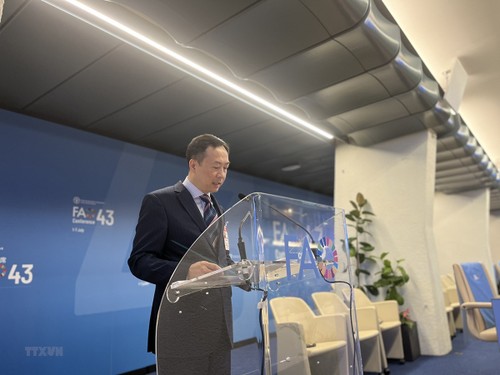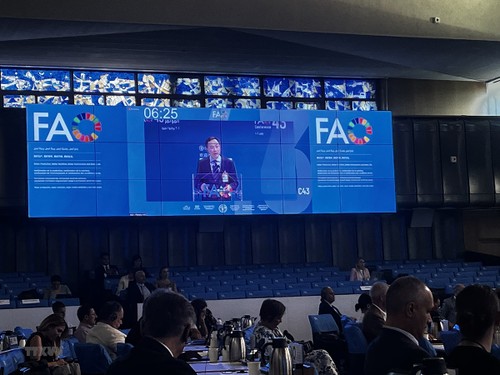 Ambassador Duong Hai Hung delivers a speech at the meeting (Photo: Duong Hoa/VNA) Ambassador Duong Hai Hung delivers a speech at the meeting (Photo: Duong Hoa/VNA)
|
Ambassador Hung, who is also Vietnam’s Representative to FAO, proposed three actions for FAO and its partners:
First, help member countries implement a national program to make the agriculture and food system more adaptable, comprehensive, and sustainable. Vietnam is ready to collaborate with other parties to make agricultural commodity trade a foundation for regional and global food security.
Second, expedite green and digital agricultural transformation, and provide financial support, technology, and capacity-building to developing countries in their transition to more diverse, sustainable, and climate-resilient food systems.
Third, promote coordination and information-sharing in sustainable natural resource and water resource management, including trans-border water resources, marine resources, and South-South cooperation.
 The plenary meeting of the FAO’s ministerial conference on July 5, 2023 (Photo: Duong Hoa/VNA) The plenary meeting of the FAO’s ministerial conference on July 5, 2023 (Photo: Duong Hoa/VNA)
|
Ambassador Hung highlighted Vietnam's efforts, and said sustainable agriculture and food security are pillars of Vietnam's socio-economic development strategy until 2030, with a priority on developing eco-friendly, high-tech agriculture with low emissions, climate resilience, and improving rural people’s livelihoods.
Vietnam's food system is moving towards a multi-sectoral, multi-target approach that will make it a transparent, responsible, sustainable food supplier; contribute to global food security; adapt to climate change; protect natural resources, ecosystems, and biodiversity; and provide sustainable livelihoods and social security to poor and vulnerable people.